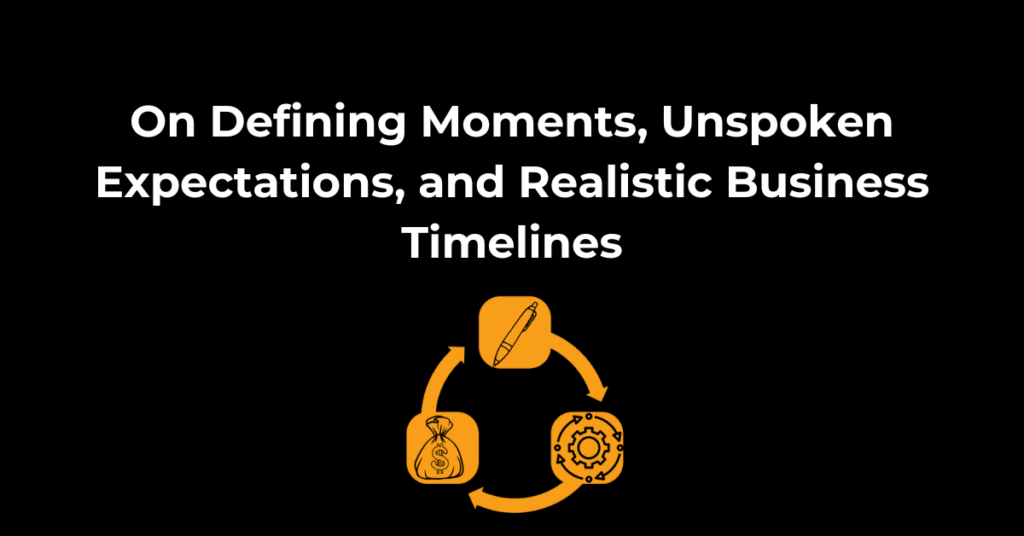
1. New Skill Unlock: Engineering Defining Moments
Chip Heath’s book The Power of Moments opened my mind to a skill I didn’t know existed:
The power to engineer defining moments.
Defining moments are the experiences you remember for the long-term. They make up 20% of day-to-day experiences, yet they are the ONLY experiences consistently recalled. According to the author, the two kinds of defining moments are Peaks and Pits.
The book is an exploration of strategies and tactics for engineering peaks and filling in pits.
The overarching message is that companies are paying too much attention to ROIs and P/Ls and not committing enough attention to optimizing their customer experience for creating defining moments.
Last week, all at once, it became apparent that this was precisely the skill I have been missing. And the reason I was missing it is because I didn’t know it was a skill at all. I presumed that defining moments just happened and all we could do was embrace them when fortune deemed it appropriate to place them in our path.
I was wrong.
The book runs down story after story of brilliant entrepreneurs who put all their focus on designing memorable experiences for their customers. Iconic brands like a John Deere, Southwest Airlines, and the Magic Castle Hotel are cited. If you want to see the power of creating moments, go look at the reviews on the Magic Castle Hotel website.
It turns out that creating moments is one of the highest-value skills an entrepreneur can develop.
I am thrilled by the prospect of developing this skill for myself while designing, testing, and optimizing the 628 Writing Challenge.
I want to turn it into a life-altering, mind-expanding, unforgettable, peak experience for participants.
My point here is that you can take your business to the next level, if you commit to building this little-known, high-impact skill.
2. Unspoken Expectations are Premeditated Resentments
After many years and many transactions as a real estate agent, I have come to believe that setting the right expectations is the foundation of the job.
In fact, setting expectations is the foundational job of all entrepreneurs and sales people (since all entrepreneurs are sales people). The reason it is absolutely essential to give voice to all expectations is simple. How can another party meet unknown expectations?
And nothing breeds more resentment than unmet expectations.
Examples:
- how I feel toward a restaurant after sitting in a fast food drive through for 45 minutes.
- Or how I feel when I want a glass of milk and all they have is soy “milk.”
- Or how I feel when I’m supposed to get a window seat on the flight but end up squeezed between two folks who have skipped a lot of workouts.
The easiest way to avoid resentment in the future is to have the courage to voice your expectations in the present.
3. It Takes 2-3 Years to Earn Real Competency in Any New Venture
That’s why it’s scary.
The fact is you don’t even know all of what you need to know to be confident when you set out to build the venture. You don’t know what you don’t know. You barely know where to start. So the first 18 months are devoted to just learning the ropes, and the second 18 months are devoted to developing the appropriate skills.
But by the end of year three, you can be as competent as anyone in the industry.
And you can choose at that time whether to continue down that road or pivot.
When I started RV Heroes in 2014, I had no idea how to set up an LLC or what a business license was or how to fix RVs.
Even worse, there were no other existing on site RV service companies around. The only option for consumers was to bring their camper into a dealership, drop it off and hope that it gets repaired at some point in the future, and trust that the price they were paying was appropriate. So I didn’t have any other companies model.
I had to figure it out on my own.
I didn’t know it at the time, but I came to learn that I needed systems for bringing repair orders into the business, systems for managing expenses, systems for executing repairs, and other systems beyond that. After three years, I realized that RV Heroes was not the business I was uniquely put on earth to run.
So I stepped out of it.
A year later, I got my real estate license.
When I started out, I didn’t know the difference between an inspection and an appraisal. I couldn’t tell you what title insurance was. And I wasn’t wel- suited for negotiations because I hated and feared disappointing other people.
It took me seven months to close my first deal and 11 more months to figure out the games that were being played in the industry. Then it took me another four years to explore all of the primary facets of the real estate industry.
By the end of my third year, I was as good of a real estate agent as the best agents in my market.
Last year, I started learning about building businesses online.
Here I am 10 months later preparing to launch my first profitable online project. I’m very excited to see where this takes me.
The prevailing point here is that it takes 2 to 3 years to earn enough understanding and confidence in a new venture to determine whether it is worth continuing to build.
This truly is something I wish I knew earlier.
